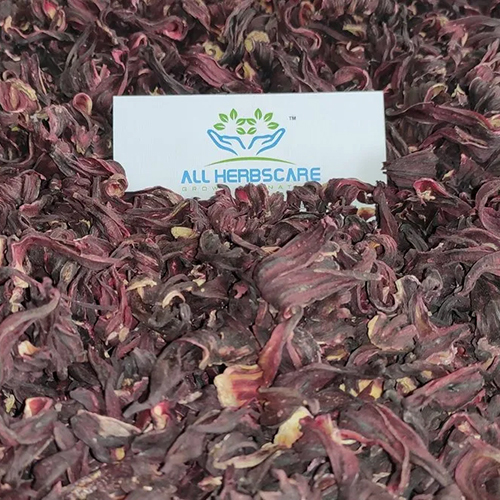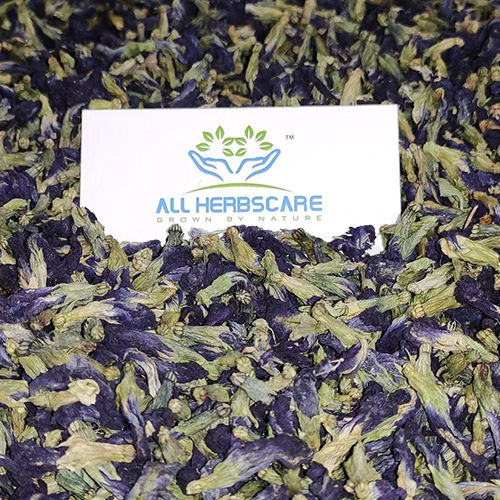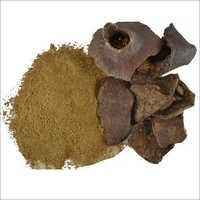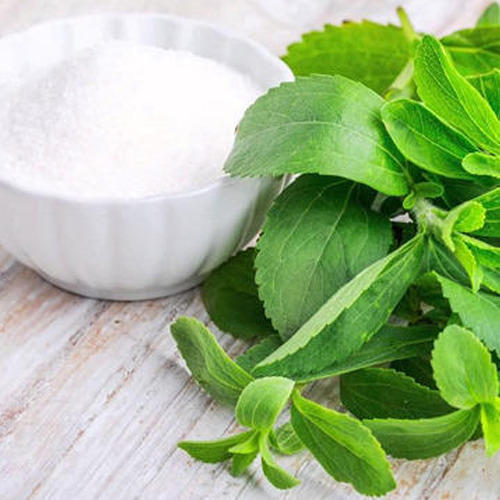- होम पेज
- कंपनी प्रोफाइल
-
हमारे उत्पाद
- प्राकृतिक जड़ी बूटियों के पाउडर
- हिबिस्कस फ्लावर
- प्राकृतिक मेंहदी पाउडर
- सूखे लैवेंडर बड्स
- आंवला पाउडर
- हरीतकी पाउडर
- गुडूची पाउडर
- सफ़ेद मूसली पाउडर
- होली बेसिल पाउडर
- शतावरी पाउडर
- हिबिस्कस पाउडर
- ब्राह्मी पाउडर
- भृंगराज पाउडर
- रीठा पाउडर
- गिलोय एक्सट्रैक्ट पाउडर
- प्राकृतिक मंजिष्ठा रूट पाउडर
- मोरिंगा की पत्तियों का पाउडर
- लेकोरिस रूट पाउडर
- स्टीविया पाउडर
- अश्वगंधा पाउडर
- प्राकृतिक लीकोरिस पाउडर
- सूखे तुलसी के पत्तों के पाउडर की सामग्री
- सूखे तुलसी के पत्तों का पाउडर
- नेचुरल्स ब्राउन तुलसी पाउडर
- तुलसी के पत्तों का पाउडर
- आयुर्वेदिक गिलोय पाउडर
- प्राकृतिक गुडूची पाउडर
- गिलोय पाउडर
- नीम गिलोय पाउडर
- भूमि आंवला पाउडर
- प्राकृतिक भूमि आंवला पाउडर
- अशोका पाउडर
- अर्जुन पाउडर
- गोखरू चूर्ण
- गुडमार पाउडर
- गोटुकोला पाउडर
- प्राकृतिक वेटिवर रूट पाउडर
- कालमेघ पाउडर
- प्राकृतिक कालमेघ रूट पाउडर
- प्राकृतिक पुनर्नवा पाउडर
- पुनर्नवा पाउडर
- सफ़ेद मुसली की जड़ का पाउडर
- पिलालिमूल पाउडर
- अम्बा हल्दी पाउडर
- अल्फाल्फा पाउडर
- व्हीट ग्रास पाउडर
- बबूल पाउडर
- प्राकृतिक बिभीतकी पाउडर
- बिभीतकी पाउडर
- त्रिफला पाउडर
- मंजिष्ठा पाउडर
- लॉन्च सीड पाउडर
- त्रिफला पाउडर
- हर्बल वेटिवर रूट पाउडर
- प्राकृतिक लौंच सीड पाउडर
- बटरफ्लाई ब्लू मटर फ्लावर
- ड्राई हिबिस्कस फ्लावर
- सूखी गुलाब की पंखुड़ियाँ
- कैमोमाइल फ्लॉवर
- सूखे फूल
- वानस्पतिक अर्क
- निर्जलित सब्जी पाउडर
- प्राकृतिक एवं आवश्यक तेल
- कॉस्मेटिक के लिए जड़ी बूटी पाउडर
- प्राकृतिक आंवला पाउडर
- लीकोरिस पाउडर
- तुलसी पाउडर
- वेटिवर रूट पाउडर
- हर्बल मंजिष्ठा पाउडर
- प्राकृतिक रीठा पाउडर
- प्राकृतिक ब्राह्मी पाउडर
- जटामांसी पाउडर
- एलोवेरा पाउडर
- ऑरेंज पील पाउडर
- अनार का छिलका पाउडर
- रोज पेटल पाउडर
- ऑर्गेनिक हिबिस्कस पाउडर
- सेना के पत्तों का पाउडर
- ऑर्गेनिक नेचुरल मेंहदी पाउडर
- प्राकृतिक इंडिगो पाउडर
- सब्जियाँ, फल और मसाला पाउडर
- चाय बैग सामग्री (काट और स्थानांतरित)
- प्राकृतिक कच्ची जड़ी-बूटियाँ
- सूखा लेमनग्रास
- सूखी मेंहदी
- सूखे बिछुआ के पत्ते
- सूखी हरी चाय की पत्तियां
- सूखे थाइम के पत्ते
- सूखे पेपरमिंट के पत्ते
- सूखे स्पीयरमिंट के पत्ते
- सूखे अजमोद के पत्ते
- सूखे तुलसी के पत्ते
- सूखे मोरिंगा के पत्ते
- सूखे स्टीविया के पत्ते
- सूखे मेथी के पत्ते
- सूखी शतावरी की जड़
- सूखे अश्वगंधा की जड़
- सूखा हुआ आंवला
- सोपनट हर्ब्स
- स्वास्थ्य देखभाल उत्पादों के लिए हर्बल सामग्री
- हरीतकी हरद हर्बल पाउडर
- रूबिया कॉर्डिफोलिया पाउडर
- निर्जलित पुदीने की पत्तियों का पाउडर
- विथानिया सोम्निफेरा पाउडर
- मोरिंगा ओलीफेरा लीव्स पाउडर
- एलो वेरा पाउडर
- शतावरी रेसमोसस रूट पाउडर
- टर्मिनलिया चेबुला पाउडर
- ग्लाइसीरिज़ा ग्लबरा रूट पाउडर
- स्टीविया स्वीटनर पाउडर
- स्टीविया लीव्स पाउडर
- अर्जुन बार्क पाउडर
- मुलेठी पाउडर
- अश्वगंधा पाउडर
- प्राकृतिक मंजिष्ठा पाउडर
- करी पत्ते का पाउडर
- मेथी पाउडर
- अमलाकी आंवला पाउडर
- बीट रूट पाउडर
- हर्बल मेथी पाउडर
- एम्ब्लिका ऑफ़िसिनैलिस पाउडर
- ऑर्गेनिक स्पिरुलिना पाउडर
- नोनी फ्रूट पाउडर
- बकोपा मोननेरी पाउडर
- बोसवेलिया सेराटा गम
- जौ घास पाउडर
- ब्रिंगराज हर्बल पाउडर एक्लिप्टा प्रोस्ट्रेटा
- कॉस्मेटिक उत्पादों के लिए हर्बल सामग्री
- नींबू के छिलके का पाउडर
- ओसीमम सैंक्टम पाउडर
- एलो बारबाडेंसिस पाउडर
- पुदीने की पत्तियों का पाउडर
- लीकोरिस रूट पाउडर
- प्राकृतिक इंडिगो पाउडर ग्रीन
- हर्बल मेंहदी पाउडर
- रीठा सोपनट हर्बल पाउडर
- हिना पाउडर
- रीठा हर्बल पाउडर
- शिकाकाई पाउडर
- हर्बल ब्राह्मी पाउडर
- अनार के छिलके का पाउडर
- अरिथा पाउडर
- भृंगराज पाउडर
- नीम की पत्तियों का पाउडर
- अश्वगंधा की जड़ें
- मुल्तानी मिट्टी मिट्टी
- ऑर्गेनिक आंवला पाउडर
- सूखे पत्ते
- सूखी जडी - बूटियां
- फूल चाय
- हर्बल चाय
- सूखा पाउडर
- सूखी गुलाब की पंखुड़ियाँ
- भारतीय आयुर्वेदिक जड़ी बूटियाँ
- बीज
- प्राकृतिक जड़ी बूटियों के पाउडर
- प्रमाणपत्रs
- संपर्क करें
ड्राई हिबिस्कस फ्लावर
370 आईएनआर/Kilograms
उत्पाद विवरण:
- टाइप करें सूखे हुए फूल
- वैराइटी हिबिस्कस फ्लावर
- पार्ट
- रंग प्राकृतिक
- साइज 25 किग्रा
- शेल्फ लाइफ 2 साल वर्ष
- अधिक देखने के लिए क्लिक करें
X
मूल्य और मात्रा
- किलोग्राम/किलोग्राम
- किलोग्राम/किलोग्राम
- 25
उत्पाद की विशेषताएं
- सूखे हुए फूल
- हिबिस्कस फ्लावर
- प्राकृतिक
- 25 किग्रा
- 2 साल वर्ष
व्यापार सूचना
- mudra
- 5000 प्रति महीने
- 7-10 दिन
- Yes
- 25 kg pp bag
उत्पाद वर्णन
Dried hibiscus flowers (Hibiscus sabdariffa) are a versatile and beneficial natural ingredient used in a variety of applications, from beverages to skincare. Known for their vibrant color and tangy, slightly tart flavor, hibiscus flowers are rich in antioxidants, vitamins, and other bioactive compounds that provide numerous health benefits. Her s a comprehensive guide on how to use dried hibiscus flowers:
1. Health Benefits and Uses
1.1. Hibiscus Tea
-
Most Common Use: The most popular way to use dried hibiscus flowers is by brewing them into a hibiscus tea. Known for its tart, cranberry-like flavor, hibiscus tea is not only refreshing but also packed with nutrients.
-
Health Benefits:
- Rich in Vitamin C: Hibiscus tea is an excellent source of vitamin C, which supports immune function, skin health, and helps the body absorb iron.
- High in Antioxidants: Hibiscus contains anthocyanins and flavonoids, powerful antioxidants that help protect cells from oxidative stress and inflammation.
- Lower Blood Pressure: Studies have shown that hibiscus tea can help lower high blood pressure due to its vasodilatory effects. It is often recommended as a natural remedy for hypertension.
- Weight Management: Some research suggests that hibiscus tea may help with weight loss by promoting fat metabolism and reducing fat accumulation.
- Digestive Health: Hibiscus has mild diuretic properties and may promote healthy digestion by stimulating bile production.
-
How to Make Hibiscus Tea:
- Boil water and pour it over 1-2 teaspoons of dried hibiscus flowers (or more for a stronger flavor).
- Let the flowers steep for 5-10 minutes, then strain.
- Sweeten with honey, stevia, or agave syrup as desired, or add lemon for extra flavor.
-
1.2. Hibiscus-Infused Water
-
Refreshing Drink: You can infuse dried hibiscus flowers in water to create a naturally flavored, hydrating drink. This method retains the vibrant color and tart taste, making it an eye-catching and thirst-quenching beverage.
- Preparation: Add a few dried hibiscus flowers to cold or room-temperature water and let them steep for several hours or overnight in the fridge. Strain and enjoy the naturally flavored, refreshing beverage.
- Flavor Variations: You can also add fruits like lemon, orange slices, or mint leaves to enhance the flavor profile.
1.3. Hibiscus Syrup
-
For Beverages and Desserts: You can make hibiscus syrup by simmering dried hibiscus flowers with water and sugar. This syrup can be used as a sweetener for drinks, desserts, or cocktails.
-
How to Make Hibiscus Syrup:
- Boil 1 cup of water and add 1/4 cup of dried hibiscus flowers.
- Simmer for about 10-15 minutes, then strain out the flowers.
- Add sugar or honey to taste (about 1/2 to 1 cup of sugar depending on your sweetness preference) and stir until dissolved.
- Allow the syrup to cool and store it in the refrigerator.
- Uses: Drizzle over pancakes, waffles, yogurt, ice cream, or mix into beverages like lemonade or iced tea.
-
1.4. Hibiscus Powder (for Smoothies or Cooking)
-
Nutrient-Rich Additive: Dry hibiscus flowers can be ground into a fine powder and added to smoothies, baked goods, or other recipes for a nutrient boost.
- Smoothies: Add 1 teaspoon of hibiscus powder to your smoothie for a tangy kick and extra antioxidants.
- Baked Goods: Mix hibiscus powder into cake, muffin, or cookie batter for a beautiful color and health benefits.
1.5. Skin Care
Hibiscus has long been used in traditional skincare for its anti-aging, soothing, and revitalizing properties. It contains natural acids (like AHAs) that help exfoliate dead skin cells, leaving the skin fresh and glowing. Its high vitamin C content helps brighten the skin and supports collagen production.
1.5.1. Hibiscus Face Mask
-
Anti-Aging and Brightening: A hibiscus face mask can help reduce the appearance of fine lines, wrinkles, and dark spots, while also providing hydration to dry or mature skin.
-
How to Make a Hibiscus Face Mask:
- Grind dried hibiscus flowers into a fine powder (or use hibiscus powder).
- Mix 1 tablespoon of hibiscus powder with 1 tablespoon of honey or yogurt.
- Apply to your face for 10-15 minutes, then rinse with warm water.
- Benefits: Hibiscus has natural alpha-hydroxy acids (AHAs) that gently exfoliate the skin and promote collagen production, which helps improve skin elasticity.
-
1.5.2. Hibiscus Toner
-
Refreshing Skin Toner: Hibiscus flowers can be infused into a homemade toner to help balance skin pH, tighten pores, and hydrate the skin.
-
How to Make Hibiscus Toner:
- Steep 1-2 teaspoons of dried hibiscus flowers in hot water for 5-10 minutes.
- Let it cool and strain.
- Pour the infusion into a spray bottle and use as a refreshing facial mist or toner.
- Benefit: The antioxidants and organic acids in hibiscus help brighten the skin, fade dark spots, and reduce fine lines.
-
1.5.3. Hibiscus Exfoliant Scrub
-
Gentle Exfoliation: The dried flowers can also be used as part of a gentle exfoliating scrub.
-
How to Make a Hibiscus Scrub:
- Grind the dried hibiscus petals into a coarse powder.
- Mix with a tablespoon of sugar and a small amount of coconut oil, honey, or yogurt to create a paste.
- Gently massage the scrub onto your skin in circular motions, then rinse with warm water.
- Benefits: This scrub removes dead skin cells, promotes circulation, and leaves the skin soft and glowing.
-
1.6. Hair Care
-
Hair Growth and Scalp Health: Hibiscus is often used in hair care due to its ability to nourish the scalp, reduce dandruff, and promote hair growth. Its high vitamin C and amino acid content can help strengthen hair and prevent hair loss.
-
How to Make a Hibiscus Hair Rinse:
- Steep 1-2 teaspoons of dried hibiscus flowers in hot water for 10-15 minutes.
- Strain the liquid and allow it to cool.
- Use the hibiscus infusion as a final hair rinse after shampooing. It can add shine, boost scalp health, and may encourage healthy hair growth.
-
1.7. Hibiscus for Skin Inflammation
-
Soothing Remedy for Skin Irritations: Hibiscus has anti-inflammatory properties that can help soothe skin irritation, redness, and puffiness. It is also used for conditions like eczema, psoriasis, or sunburn.
- How to Use: Prepare a cold hibiscus tea infusion and apply it to inflamed or irritated skin using a clean cloth. Let it sit for 10-15 minutes to soothe the skin.
2. Other Uses for Dried Hibiscus Flowers
2.1. Hibiscus Infused Oils
- You can create a hibiscus-infused oil by adding dried hibiscus flowers to a carrier oil (like coconut oil, olive oil, or jojoba oil) and allowing it to steep for a few days. This oil can be used for massages, skin care, or even as a hair oil to promote shine and softness.
2.2. Culinary Garnish
- Decorative Garnish: Dried hibiscus flowers can be used as a beautiful and edible garnish for salads, cakes, desserts, and even savory dishes. Their vibrant color adds a decorative touch to plates.
2.3. Hibiscus Bath Soak
- Relaxing Bath: Add a handful of dried hibiscus flowers to your bath water or place them in a muslin bag to create a relaxing herbal bath soak. The antioxidants in hibiscus help rejuvenate the skin, while the flowers soothing properties provide relaxation.
3. Precautions and Considerations
- Pregnancy and Menstruation: There are concerns that hibiscus may have estrogen-like effects, so pregnant women or those who are breastfeeding should consult with a healthcare provider before using hibiscus extensively. Additionally, hibiscus may have an effect on menstrual flow, so caution is recommended for women with heavy periods.
- Allergies: People with allergies to other flowers in the Malvaceae family (such as hibiscus, hollyhock, or okra) should be cautious when using hibiscus.
- Blood Pressure: If you are on blood pressure medication, consult your healthcare provider before consuming hibiscus tea regularly, as it may have a blood pressure-lowering effect.
Tell us about your requirement

Price: Â
Quantity
Select Unit
- 50
- 100
- 200
- 250
- 500
- 1000+
Additional detail
मोबाइल number
Email
प्राकृतिक जड़ी बूटियों के पाउडर अन्य उत्पाद
 |
ALL HERBSCARE
सर्वाधिकार सुरक्षित.(उपयोग की शर्तें) इन्फोकॉम नेटवर्क प्राइवेट लिमिटेड . द्वारा विकसित एवं प्रबंधित |








